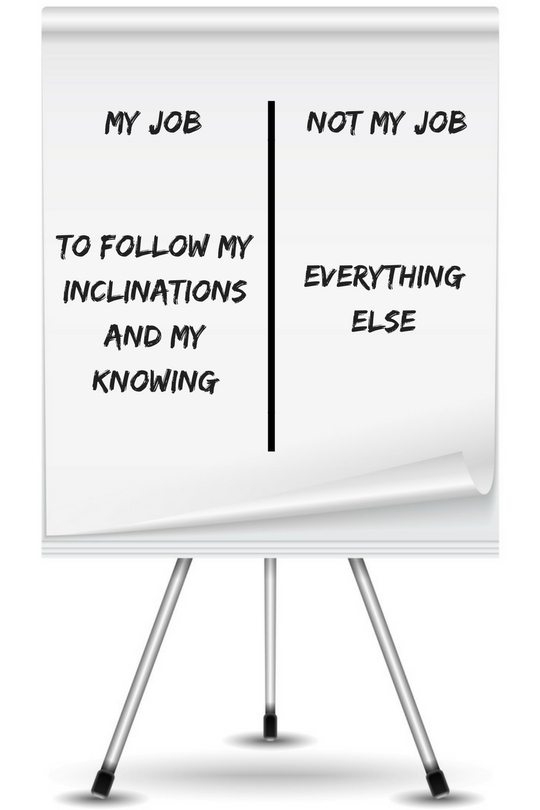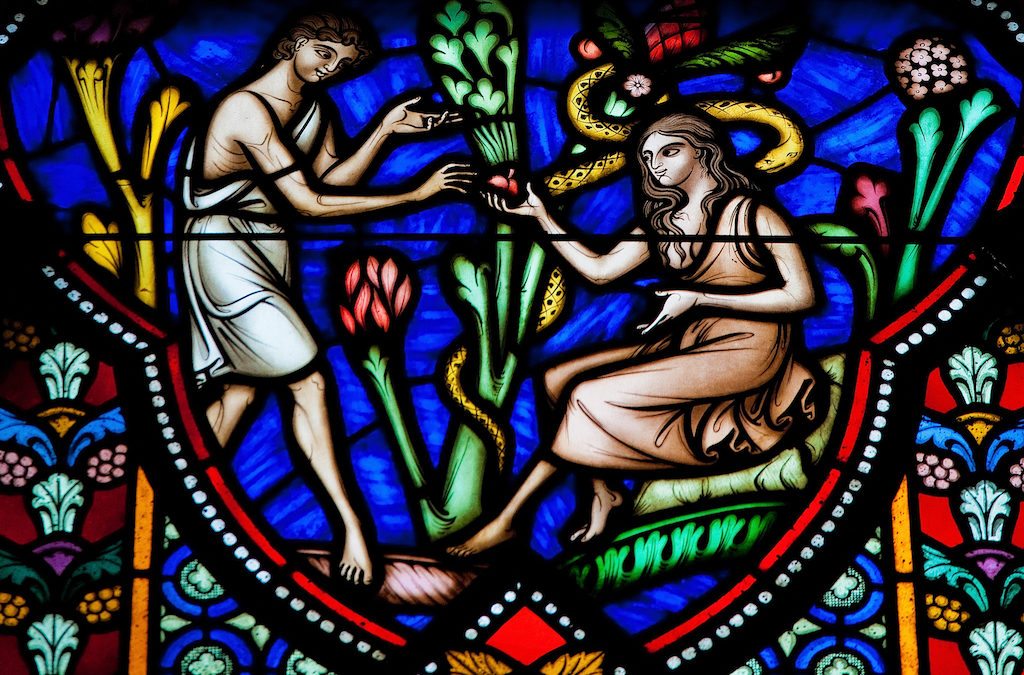I was sitting with a client yesterday exploring what our job actually is as creators and by implication, what’s not our job. Here’s where we got to:

What does it mean to follow your inclinations?
It means noticing what you’re curious about and following your curiosity. Noticing what you’re interested in and following your interest. Noticing which way you’re leaning and leaning further until you fall all the way into action.
What does it mean to follow your knowing?
It means that there is something in us which somehow knows what to do when. When we pay attention to that inner knowing, we do really well; when we don’t, we often struggle.
In its simplest form, following your inclinations and your knowing means doing what you actually want to do whenever you know to do it. Now I recognize this may seem so basic as to hardly be worthy of mention, except for one thing:
Most people almost never do what they actually want to do.
They become doctors and lawyers because that’s what their parents wanted, or they become artists and circus clowns because that’s as far away from what their parents wanted as they can get. (My favorite definition of maturity comes from Werner Erhard, who said that “Maturity is doing whatever you want, even if your parents want the same thing.”)
They go to work when they want to be at home or stay home when they kind of want to be working because “that’s the right thing to do”.
They lead lives of quiet desperation, perhaps once or twice getting sufficiently frustrated with the continual ignorance of their own inclinations to “break free” and have a mad affair or walk away from their job, usually but not always regretting it later because they never learn how simple navigating life can be.
Why?
I have a couple of theories…
1. Because we trust the thoughts that tell us we’re untrustworthy
Apparently, at some point early on in the history of the world this woman was talking with a snake who convinced her to eat an apple, and ever since then we’ve all been screwed. I can’t speak to the historical accuracy of that story, but whether our distrust for our own inclinations is biblical or psychological in origin, we tend to believe that we’re fundamentally bad for ourselves, and if we followed our own inclinations disaster would ensue.
What I can say is that in my experience, nothing could be further from the truth. I find that the more I go with my inclinations, the more wonderfully my life unfolds. Things don’t always (or even often) go the way I expect, but more often than not, they go better than I could have hoped for. And the fun and ease of following my inner sense of direction more than makes up for any rabbit holes I wind up falling down along the way.
2. Because we confuse our authentic inclinations with emotional impulses
There’s a fantastic video bouncing around the internet of the football coach Herm Edwards warning rookies in the NFL about the perils of social media. He envisions creating a truly smart phone that has a button on it marked “Don’t Press Send” to prevent people from publishing tweets and texts that they’re likely to regret within minutes if not seconds of sending out into the world.
And this points to the difference between an inclination and an impulse:
Your impulses come and go with your moods; your inclinations remain pretty much the same regardless of your state of mind.Click To TweetIf we really want to do something, we’ll still want to do it after we’ve sobered up, taken a few deep breaths, counted to ten, and had our morning coffee. If it was just a whim, it will be gone with a whimper, not a shout.
After taking a bit of time to reflect on the implications of our only job as creators being to follow our inclinations and knowing and let the chips fall where they may, my client asked a simple question:
Could it really be this simple?
Which brought forth a really simple answer:
Yes. Yes it can.
Have fun, learn heaps, and happy exploring!
With all my love,
![]()






